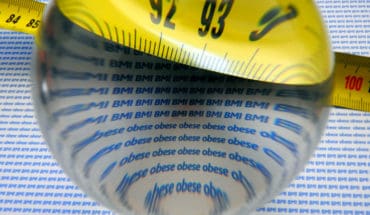“Are we smarter in summertime?” New research by the University of Bradford has found that a lack of daylight could be linked to short term memory loss in mammals, including humans.
School of Chemistry and Biosciences and Dr Sam McLean from the School of Pharmacy and Medical Sciences say experiments revealed a link between lack of daylight and short term memory loss.
They believe that so-called ‘light therapy’ could become much more widespread in future for the treatment of things like Seasonal Affective Disorder and other conditions affecting the central nervous system.
The findings are included in the research paper The effect of photoperiod and high fat diet on the cognitive response… published in the National Library of Medicine journal Physiology and Behavior. The study looked at how rats given a high and low-fat diets performed in memory tests when exposed to long and short ‘photoperiods’ (longer summer-like and shorter winter-like periods of light).
Body clock
Dr Helfer, who is an expert on chronobiology and the human body clock, said the findings revealed a significant correlation between short day length during winter season and poor memory, adding that, although further research was needed, it could lead to new treatments for a number of conditions.
She said: “Numerous studies have already shown a link between poor diet and loss of short-term memory but this is the first time we have made a link between memory impairment and seasons. We assumed a high fat diet would have a negative impact on memory but we found that even animals with a healthy diet still performed poorly when in a short photoperiod.
“What this means for humans is hard to say. There have been some studies which show short photoperiod can be used to treat central nervous system injuries, for example.
“What this suggests is that just by changing how much light animals – or people – have, you can change a lot of physiological factors, including, as we have now shown, learning and memory.
“This is a very niche area of research but one which also has massive potential. More research needs to be done but this could, for example, lead to the use of photoperiod therapy as a non-invasive treatment for things like seasonal affective disorder, depression, anxiety and stress.”
Brain changes
Dr Helfer said there was also a natural explanation for the loss of short-term memory during short daylight periods.
“In summer, seasonal animals tend to put on more weight, which aids with things like reproduction and preparing for winter. But during winter, when there are fewer resources around like food and also less light, the body shuts down all sorts of functions, and cognition, which can be quite energy intensive, is one such.”
She added: “The next step is to look to see how these changes affect the brain” in collaboration with Dr McLean, an expert in animal behaviour and cognition.
Dr McLean said: “We already know that cognitive processes, and in particular, learning and memory, are heavily influenced by dopamine [a neurotransmitter used by the body’s central nervous system to send messages between cells], and now we need to find out what happens in the brain.
“We hope this exciting work, bringing together our research interests in cognition and chronobiology, will lead to therapeutic interventions.”
Dr Helfer added: “While we are still some way away from making the next step into humans, the potential is there and if we continue this research, we might be there sooner than later.”
- Gut microbiome could delay onset of type 1 diabetes - 3rd April 2025
- The da Vinci 5 Robot Is Set To Transform Bariatric Care: - 31st March 2025
- Beyond money: the hidden drivers fuelling child food insecurity - 31st March 2025






